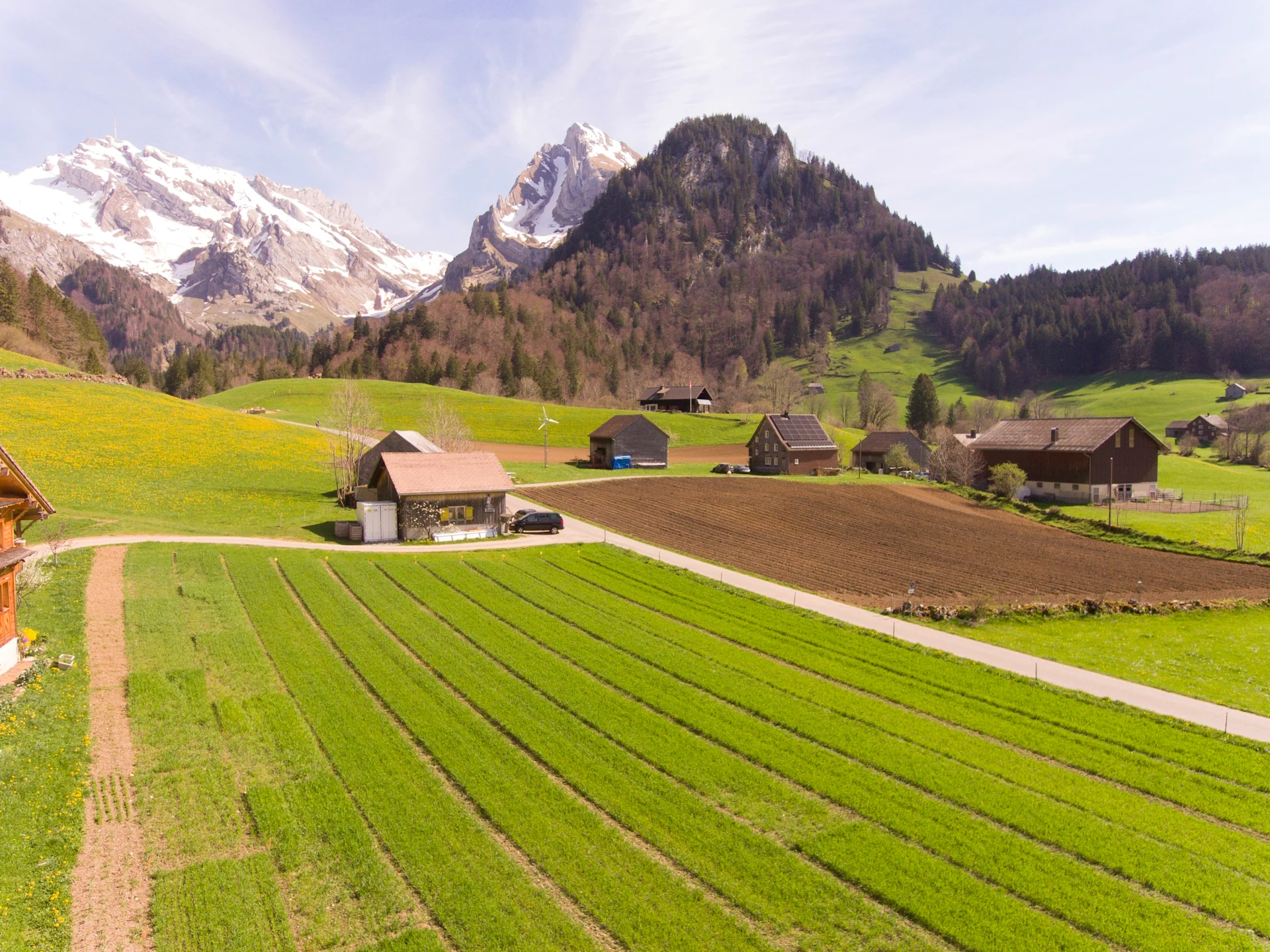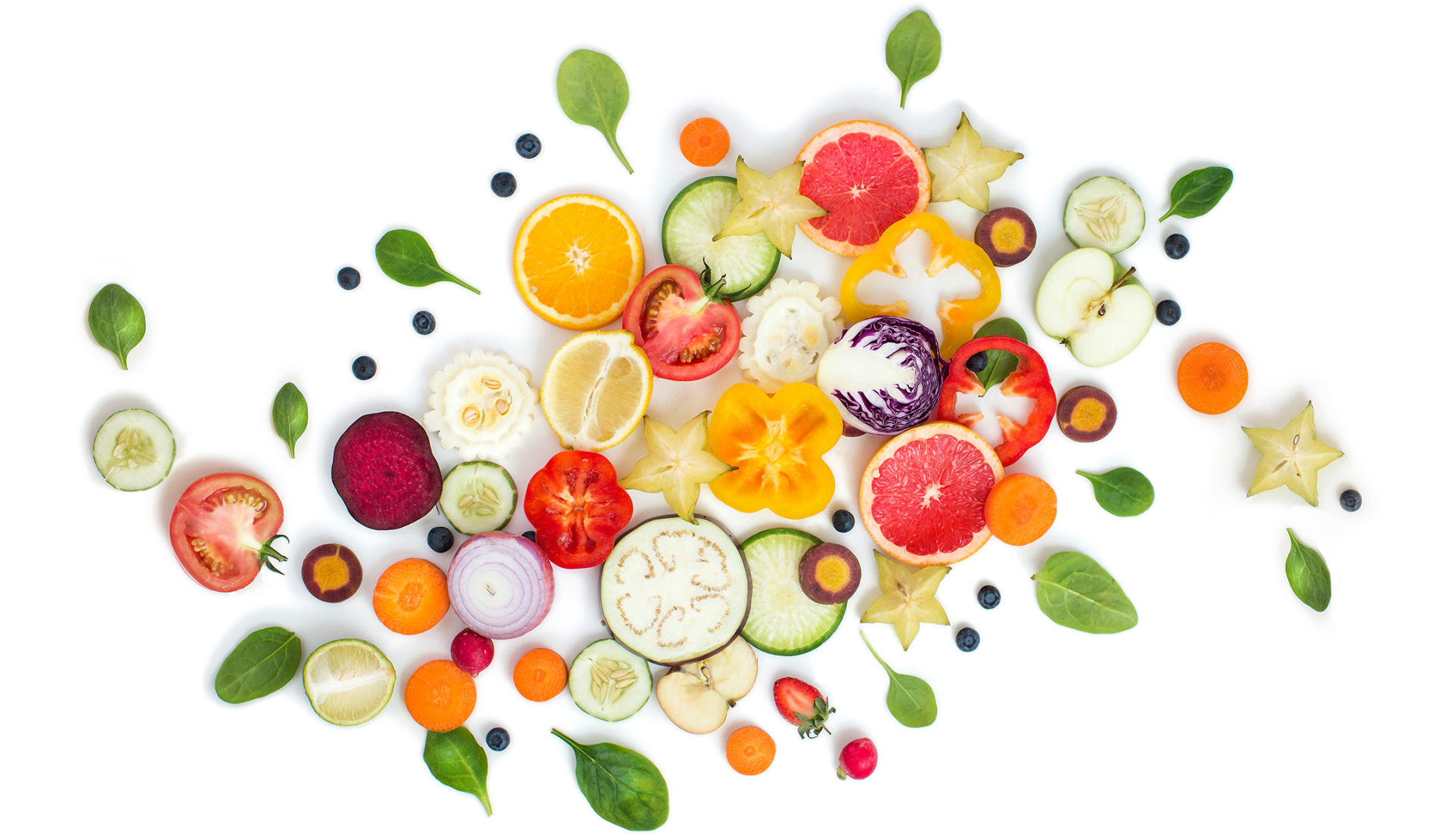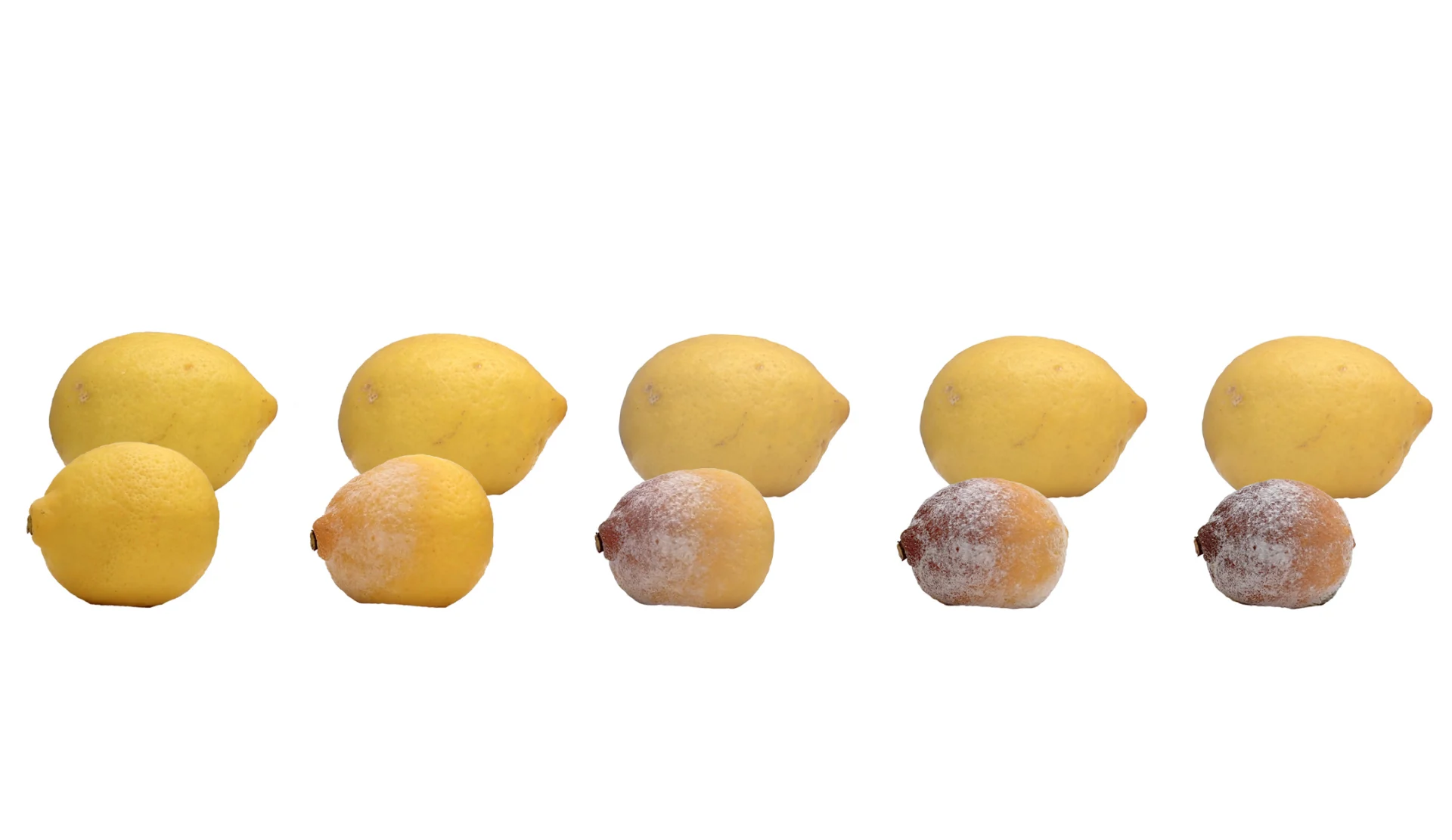
Farming
Will olives soon grow in Switzerland?
Temperatures are rising. But what does that mean for our agriculture? We take a look at the fields of the future.
navigation

Sustainability
Everyone has been confronted with their lemons turning grey or white and with fuzz growing from their raspberries. Mould leads to food waste costing billions. The Swiss startup Agrosustain has now developed a plant-based remedy to combat the problem of rotting food.
Transparent containers are stacked on top of each other in a cupboard. A grey-brownish fuzz can be seen in each of them. «That is our mould library», says Olga Dubey. She researches these rather unappetising growths in her role as CEO of Agrosustain, a startup based in Nyon in the canton of Vaud. Over the past two years, the 29-year-old and her team have analysed what kind of mould grows on fruits and vegetables such as lemons, oranges, strawberries, raspberries, apples, tomatoes, and carrots and how they can be protected against succumbing to this fate.

Destructive spores are the most common cause of plant illnesses. Up to eight different varieties can form on a strawberry alone. Every year, it is estimated that around CHF 30 billion is lost worldwide due plants and their fruit being attacked by fungi. «Mould is responsible for substantial harvest losses», says Olga Dubey. She shares that the problem is especially acute in the case of quickly perishable fruits like strawberries, or if the transportation and storage of food is suboptimal.
In her doctoral thesis, the entrepreneur had already set herself the objective of finding a plant-based remedy against pests. «Plants can be used to fight many things, so why not mould too?», she says. Her time researching for her doctorate had almost come to an end three years ago when she happened upon a weed with small white flowers in her lab that belongs to the cruciferous plant family. It was highly effective. In the meantime, Olga Dubey has identified two molecules from the plant that work in different combinations to combat many types of fungi.
«Plants can be used to fight many things, so why not mould too?»
Depending on the fruit, the product, which comes in a powder form, can be applied either in water or using water spray. «If we apply the remedy immediately after the fruit and vegetables have been harvested, for example in the cold storage facilities, we can prevent mould from forming», says Olga's husband Sylvain Dubey, the startup's co-founder and Chief Technology Officer. He states that this neither affects the ripening process nor the flavour, while at the same time greatly reducing harvest losses. «Depending on the variety, fruit and vegetables stay fresh for two to four days longer», says Dubey, who also explains that it is important to apply the remedy without delay, as mould is carried by the wind and spreads quickly. «The mould is smart», says Olga Dubey, who has almost become a little fond of the fuzzy fungi.
The Agrosustain team is currently working on the exact formulation of the products. Analysis is being conducted into which dosage and at what point the remedy should be applied to fruit and vegetables so that the molecules can optimally combat the mould without there being any residues left over at the time at which the food reaches the point of sale: «Our product is identified by the plant and only works on the surface of the fruit and vegetables, which is where the mould is also found. Nevertheless, there can't be any residues left behind», says Olga Dubey. In order to accurately calculate the data required to this end, she is growing tomato and strawberry plants in her own greenhouses. «While strawberries are delicate plants, tomatoes are robust», says Sylvain Dubey in explaining the choice. Agrosustain is housed at Agroscope, the federal government's agricultural research institute in Nyon. The two organisations also collaborate together, for example as part of a project aimed at combating mildew on vines.
A collaboration also exists with Migros, which has identified fruits and vegetables for the startup that are particularly susceptible to mould and also sent in citrus fruits to the Agrosustain laboratory for research purposes. Migros likewise throws a bridge between the worlds of production and research. «Through our collaboration with Agrosustain, we want to reduced food waste and the use of pesticides», says Philipp Schmidlin, who is responsible for the range of fruits at Migros (see box «Migros was already on board at an early stage»).

Before the year is out, the Vaud-based startup plans to apply for approval for the product with the European and Swiss authorities. It expects to receive this approval by 2024. Until then, Agrosustain will offer fruit and vegetable producers services aimed at optimising and reducing the use of pesticides. «Thanks to our research, we can assess when and in what quantity pesticides can be used more efficiently and more effectively», says Frits Vranken, Head of Corporate Strategy. He states that one challenge lies in the fact that certain pests have become resistant to some products. In this respect, Agrosustain hopes that, in addition to reducing food waste, it will also be able to make a contribution towards ensuring a sustainable agricultural sector, for example in the areas of water and soil pollution.
Migros became aware of Agrosustain as part of the Venture Kick startup support programme and has been working together with the University of Lausanne spin-off for two years.
Venture Kick supports new Swiss startups, for example by providing them with access to investors, training, and other offerings. With its Migros Commitment support fund, Migros supports the Venture Kick initiative in its further development. The fund is part of the retailer's social commitment, which also includes the Migros Culture Percentage and the Migros Aid Fund.
In addition to the collaboration with Agrosustain, Migros also runs other initiatives aimed at reducing the use of pesticides and food waste. For example, a project aimed at cultivating wheat without the use of pesticides is currently under way with farmers from the IP-Suisse organisation.
Discover exciting stories about all aspects of Migros, our commitment and the people behind it. We also provide practical advice for everyday life.